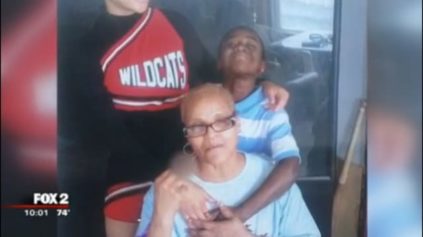New research from the American Heart Association reveals an explanation as to why Black communities see higher rates of sudden cardiac arrest death — especially between women — than white ones.
Findings from a study by the Atherosclerosis Risk in Communities (ARIC) revealed that by age 85 black men account for 9.6 percent of people who suffered sudden cardiac deaths, while 6.6 percent of sufferers were black women. Comparatively, white men accounted for 6.5 percent of sudden cardiac arrest deaths, while white women made up 2.3 percent of such victims. These numbers show Black men had a sudden cardiac death rate nearly 48 percent higher than that of white men, while Black women’s death rate was 187 percent higher than white women’s.

Black women especially face greater rates of sudden cardiac death than whites of the same gender, according to an AHA study that was published earlier this month. (Getty Images)
The study, which was conducted over the course of nearly three decades and published in AHA’s journal Circulation, revealed that Blacks’ higher comparative rates are the results of differences at a cultural and socioeconomic level, including disparities in education and income. Additionally, risk factors like hypertension and diabetes are to blame.
The ARIC study collected its data by focusing on four American communities — the suburbs of Minneapolis, Forsyth County in North Carolina, Washington County in Maryland, and Jackson, Mississippi. White participants made up 11,237 of those reviewed, while 3,832 Black participants were involved in the research.
Yet despite the findings, which were discovered over a significant span of time, lead researcher Eliseo Guallar, Ph.D., acknowledged more studies need to be conducted.
“Low income and lack of education are associated with unhealthy behaviors, low disease awareness, and limited access to care, which could all contribute to poor outcomes,” Guallar said in a press release. “However, our understanding of the mechanisms for racial differences in sudden cardiac death is still incomplete and additional research is needed.”
Still, there are some solutions available to assist Black communities with combating the findings of the ARIC.
Dr. Icilma Fergus, associate professor of medicine at Mount Sinai Medical Center in New York City, told Healthline that she’s working with communities in the area to teach them about how to spot and treat symptoms and promote heart health. She co-founded and co-directs the Healthy Heart Series program, which provides workshops and training to assist people in learning simple ways to look after themselves and to prevent and heart disease and sudden cardiac arrest.
“It’s about creating a trusting situation where people learn from and gravitate to providers they trust, gain the knowledge, and ultimately do it for themselves,” she said. “When I started working in central Harlem, I found that people weren’t as trustful of doctors at first. We started out with 10 or 20 people in the monthly workshops, now we have 90 on average.”
Along with taking proper medications, it’s also important for people to have access to healthier food options, which is not always the case in areas where food deserts are common. Such issues disproportionately affect Black communities. However, Fergus noted that getting ingredients for quality meals can be done through a community farmers market without resorting to an expensive health foods store.
